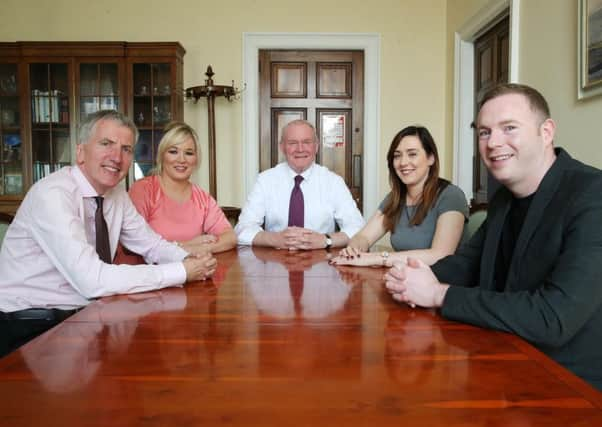Sam McBride: Stormont's flagship policy in real doubt as SF reassesses


In a way, the party was open about its approach to corporation tax – and there are striking similarities to how last year the party attempted to reopen negotiations on a deal to which it had been a signatory, the Stormont House Agreement.
Just a year ago, Sinn Fein chairman Declan Kearney said that the Government’s central policy of cutting public spending over coming years meant that Stormont “will not be able to afford” the roughly £200 million in tax revenue which it would lose if it slashed business taxes.
Advertisement
Hide AdAdvertisement
Hide AdHe said then: “One direct consequence of the ongoing austerity crisis is that, in these circumstances, the regional economy will not be able to afford the introduction of corporation tax even if a date and rate were to be agreed.”
Just four months later, Sinn Fein signed up to the Fresh Start Agreement which set a date and a rate, something which was widely believed at the time to bring certainty to the issue.
But since then Sinn Fein – a supposedly socialist party which sits with communists in the European Parliament – faces internal disquiet about the decision and an emerging left-wing challenge from People Before Profit, which took its first two seats in last month’s Assembly election.
Although Martin McGuinness said during the recent election campaign “I’m as resolute on the issue of [cutting] corporation tax as Arlene [Foster]”, senior party figures are no longer giving a blanket commitment that the tax rate will be cut to 12.5 per cent.
Advertisement
Hide AdAdvertisement
Hide AdJust over a week after Mr McGuinness’s comment, senior party colleague Conor Murphy said that cutting the tax would be “affordable”, but then told Stephen Nolan moments later that “no one knows what it costs”.
Finance Minister Mairtin O Muilleoir said that the current Treasury position is “unacceptable”. The logic of that position is that if the Treasury maintains its position, then the deal is off.
Given Sinn Fein’s recent record of ‘reinterpreting’ a major agreement to which it was party, any senior business figure who decides to make a significant investment in Northern Ireland based on the belief that corporation tax will be 12.5 per cent in April 2018 clearly has a stomach for risk.